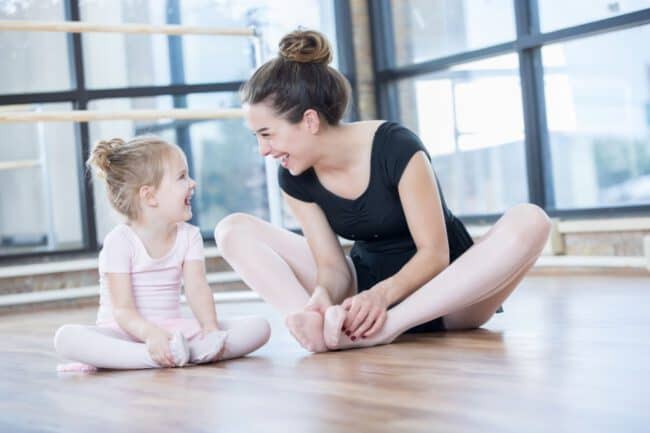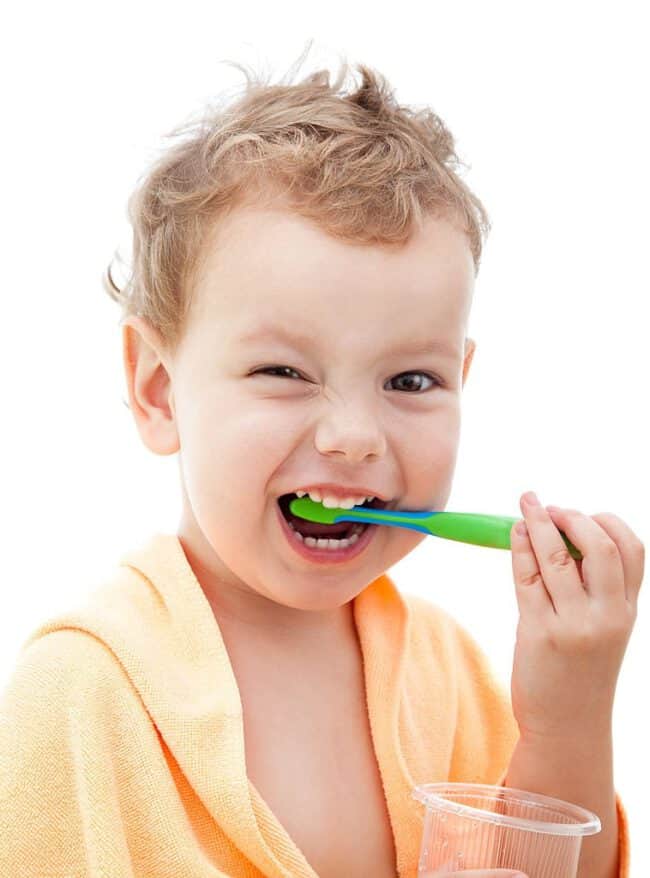There’s a first time for everything, and your child’s early years will be full of firsts. From speaking a few words to taking their first steps, the toddler stage is full of exciting developmental milestones. This stage is extremely important in establishing motor skills, cognitive ability, empathy and independence. So, while it may be hard to watch your baby grow up, these achievements are certainly worth celebrating.
1. Hand Clapping
Most toddlers will begin to clap their hands around or soon after their first birthday. The ability to bring two hands together in a clap means your toddler is developing hand-eye coordination and fine-motor skills. This will eventually allow them to play catch, comb their hair and paint pictures. When your little one claps their hands, clap back to celebrate their achievement. Follow up with smiles and verbal praise to thoroughly applaud them.
2. Undressing
Once your toddler is able to clap their hands and give high-fives, they’ll soon gain a sense of independence by dressing and undressing all by themselves. When a little kid can accomplish a task like this alone, you should treat it as a major accomplishment. Celebrate with more handclaps and maybe some new clothing that involves buttons or zippers as their motor skills improve.
Also read: Easy way to help your toddler eat more vegetables – broccoli tots recipe
3. Drinking From a Non-Sippy Cup
Sipping from a cup without a spout is another skill worth celebrating. This achievement means your toddler is gaining mastery over their mouth muscles and coordination. Set up a tea party with plastic cups and snacks to celebrate this milestone. And encourage them to continue drinking out of real cups by sipping your own beverage alongside them.
[amazon_link asins=’B07GG598ZS,B07SBKXWZZ,B07S6CRXNX,B01AX6Q630,B07Q1SZBB7′ template=’ProductCarousel’ store=’top777-20′ marketplace=’US’ link_id=’d388d622-994b-42c8-9a8b-6d242b56ab66′]

Imitating Behaviors
4. Imitating Behaviors
Just as your child sees you sipping your morning coffee from a mug and follows suit, they will begin to imitate other behaviors as well by the time they reach 15 months old. For instance, they may pick up your cell phone and pretend to have a chat or pull out the pots and pans and loudly recreate cooking dinner. These actions mean your child is beginning to understand how things work. Celebrate with a mini play kitchen or play pretend with your toddler to encourage their imagination.

Brushing Their Own Teeth
5. Brushing Their Own Teeth
Another behavior they may imitate is teeth brushing. After reaching their third birthday, your child will have a full set of baby teeth, and they’ll be old enough to try brushing them on their own. Praise their efforts with a new toothbrush with their favorite cartoon character on it or an electric one that plays songs while they brush. Making the experience fun will encourage them to continue learning to brush on their own and lay the foundation for a lifetime of good oral hygiene habits.
6. Taking a Few Steps
Walking may begin as early as eight months or as late as 18 months but, no matter when your little one takes their first steps, the event is a momentous occasion. With these steps, your baby walks into toddlerhood and, once they are walking, they’ll discover a new sense of independence. Praise their first few steps with applause and excitement and give them more opportunities to try out this skill on their own. Let them push a tiny stroller or hold their hands while they wobble around the house.
7. Laughing at Funny Things
By now, your toddler will have laughed along with you at situations you deem silly. But, laughing at something they find to be purely funny is a unique milestone that hints at their one-of-a-kind personality. Maybe they giggle at a funny-looking dog or sock puppets. Encourage more laughs by being silly yourself. Play peek-a-boo or use a different tone of voice when speaking to them or reading them a story. They’ll be in stitches, and so will you.
Also read: Best baby gates for your stairs
8. Speaking 10 Words
As with giggling, your child has likely been cooing from a very early age. And each little babble and coo has led up to this moment — their first sentence. Most toddlers can speak up to 10 words by the time they reach 18 months. At this time, their vocabulary will begin to expand and they’ll start to make longer sentences. But, for now, just a few words are reason to celebrate. Ask your little one simple questions to encourage them to use their new words and begin forming cohesive sentences.
9. Learning Empathy
Once toddlers learn to string words together to form sentences, they’ll begin to connect their own feelings and behaviors to those around them. This is the foundation for building relationships and forming deeper bonds. Your little one may then express sadness when others cry or joy when you say something positive. When they experience empathy in this way, help them cope by identifying their emotions and reassure them it’s ok to feel that way.
10. Potty Training
Using a grown-up toilet may come later in the toddler years, but it’s one milestone you may be looking forward to the most. If your child begins to express interest in all things bathroom related, can pull down their pants by themselves or tries to remove soiled diapers, it’s time to start potty training. Help your child associate the about-to-go sensation with a big kid potty and use a sticker reward system or something similar to encourage this behavior.
Developing at Their Own Pace
The toddler stage is an exciting time for children and parents alike. As your child reaches these important developmental milestones, it’s important you recognize and celebrate them. Verbal praises, rewards and other forms of encouragement will embolden your little one and help them realize their independence. And, if your child isn’t reaching these milestones at the same age as other toddlers, remember that everyone develops at their own pace. So give your children the space to grow and enjoy watching them bloom into the people they’re meant to be.
